The gradual progression of increased use of opioids, alcohol and other substances culminated in a perfect storm. Overprescribing practices, prescription misuse and illegal drugs hit Huntington, West Virginia and central Appalachia as a whole particularly hard.
Recovery doesn’t happen alone. In Huntington, health care providers, hospitals, Marshall University, community organizations and grantors all work together to ensure that everyone has access to the addiction care and treatment they need. Marshall University, its Joan C. Edwards School of Medicine and Marshall Health are at the center of this change and hope our efforts lead to long-term recovery for individuals within Huntington and throughout southern West Virginia can help establish a model for other communities struggling with similar diseases of despair.

Marshall Health obstetrician-gynecologists began providing outpatient addiction care and counseling for expectant mothers through MARC.

Cabell Huntington Hospital (CHH) opened one of the nation's first newborn units dedicated to caring for drug-exposed babies.
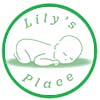
Lily's Place opened as a community-based facility that treats infants with Neonatal Abstinence Syndrome. Former Marshall neonatologist Sean Loudin, MD, served as medical director from 2014 to 2020.
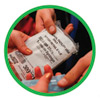
In partnership with Cabell-Huntington Health Department and the Marshall University School of Pharmacy, Cabell County's Harm Reduction Program became the first in WV to provide syringe exchange, Naloxone distribution, education and medical services in order to promote public health and safety.

Comprehensive treatment and rehabilitative services for non-violent drug and alcohol abusing crimes.

Marshall receives a SAMHSA grant to train students, faculty & community in screening, brief interventions and referral of patients in need of SUD treatment.

Marshall University formed the Substance Use Recovery Coalition to guide the university’s efforts in fighting the opioid crisis.
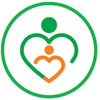
Coordinated by Marshall Health and Quality Insights, Healthy Connections was formed to unite the efforts of 25+ local groups in providing a continuum of care for at-risk families

Cabell County Drug Court partnered with Marshall University School of Pharmacy and Marshall Health obstetrician-gynecologists to provide voluntary LARC methods to women with a history of substance use.
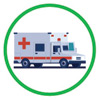
QRT members initiate contact with individuals who have overdosed within 24-72 hours to offer treatment opportunities.

Project Engage was created as a joint effort between Cabell Huntington Hospital (CHH) & St. Mary’s Medical Center to unify policies & protocols to increase likelihood that patients with SUD have options for long-term treatment upon discharge.

Hoops Family Children's Hospital at CHH opened a dedicated program to reduce trauma experienced by children who are victims of abuse or neglect.

The Joan C. Edwards School of Medicine established a dedicated Division of Addiction Sciences within the Department of Family & Community Health to house addiction medicine initiatives and related research for the School of Medicine and Marshall Health.

New education initiatives established by the Joan C. Edwards School of Medicine's Department of Family & Community Health with HRSA support to fight the opioid crisis in the region.

Then U.S. Surgeon General Jerome Adams, MD, visited Huntington for a first-hand look at community partnerships working together to solve opioid crisis and substance use disorders issues.

Dr. Robert Redfield, then director of the Centers for Disease Control and Prevention, visited Huntington to meet with local leaders about addiction recovery efforts underway. Dr. Redfield addressed community members about the national crisis and commends local efforts.
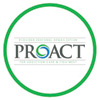
The Provider Response Organization for Addiction Care & Treatment, collaborative model for comprehensive outpatient addiction care and treatment in a single-accessible recovery service hub, opened in Huntington.

A residential treatment facility for pregnant and postpartum women & their children opened as a joint partnership between Marshall Health and the Huntington City Mission.

Marshall Health's Bob Hansen was appointed director and Brian Gallagher named chair of the WV Office of Drug Control Policy. Following Hansen's retirement in 2020, Dr. Matthew Christiansen was appointed director.

Marshall Health and West Virginia University received funding from CDC Threat Preparedness, through the West Virginia Bureau of Public Health, for each implement “Overdose to Action” in two hospitals. Marshall teamed with Plateau Hospital in Oak Hill and Rivers Health (formerly Pleasant Valley Hospital) in Point Pleasant to integrate peer recovery coaches in the emergency departments who provide linkages to care and follow up. The project expanded to include capacity building and technical assistance in emergency departments in high-risk counties.

With funding from Merck Foundation, Great Rivers was established to work with 70+ organizations across Cabell, Jackson, Kanawha and Putnam counties in WV to provide comprehensive SUD treatment.

CORE is established to provide the resources and support necessary to help individuals in recovery re-enter the workforce.

Marshall Health supported the development and planning of the Southern West Virginia Opioid Consortium through one year of HRSA planning grant funding. The Consortium focused on prevention for all populations, as well as treatment and recovery for target populations at highest risk in Logan, McDowell, Mercer, Mingo and Wyoming counties.

Huntington launched Compass with Bloomberg Foundation funds to address resiliency and wellness among first responders.

Marshall Health begins overseeing a two-year project in Wyoming County, West Virginia, a county hit hard by changing employment opportunities and the opioid crisis. We're working with community partners to establish a continuum of care for substance use disorders, including reducing barriers to prevention, early intervention, treatment and recovery.

Marshall Health partnered with Boone Memorial Hospital to expand MAT in their community and comprehensive recovery supports. Marshall Health is partnering with multiple community partners to expand certified peer coaching curriculum to vulnerable populations such as the homeless, pregnant and postpartum women, veterans and LGBTQ individuals.

Marshall Health, along with West Virginia University and West Virginia School of Osteopathic Medicine, received State Opioid Response (SOR) funding to equip individuals in the pipeline as well as the current workforce to address SUD and support MAT.
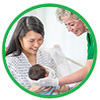
Marshall Health implemented the Maternal Opioid Misuse (MOM) model, which provides funding opportunities for selected state Medicaid agencies (Drug Free Moms and Babies sites) to support evidence-based, coordinated care delivery for pregnant and postpartum women with opioid use disorder (OUD) and their infants. The MOM model leverages Center for Medicare and Medicaid Innovation authorities and state flexibility to address the fragmented care that the model’s focus population currently receives.

In fall 2019, Marshall Health received State Opioid Response funding, through the Bureau of Behavioral Health, to provide person-centered early interventions for individuals with substance use disorders. This recovery-based change initiative utilized peers with lived experience who work in the community with high-risk populations, including unhoused, pregnant and parenting women and the LGBTQ community.
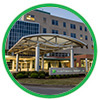
A one-year addiction medicine fellowship established in the School of Medicine's Department of Family & Community Health prepares primary care physicians with experience in caring for patients with substance use disorder.

PROACT and Project Hope for Women & Children were recruited by the Bureau of Health Facilities to participate in a pilot program to train the trainers in the Rawson TRUST model of contingency management. This model includes a broad range of interventions to motivate and reward positive behaviors. This intervention targeted individuals with stimulant use disorders.

Marshall Health opens Hope House in Huntington for women as they complete their recovery program at Project Hope for Women & Children and work toward permanent jobs and housing.

Marshall Health partnered with local organizations to launch new QRTs in Mason, Putnam and Wayne counties in WV.
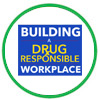
The WV Chamber of Commerce and CORE launched a free toolkit to help WV businesses create a drug-responsible workplace.

West Virginia's 3 medical schools partner on a project to embed MAT training into medical school curriculum across the state.

In February 2022, PROACT expanded to include Intensive Outpatient Services. IOP provides 9 hours of clinical support weekly for individuals with SUD who require more than weekly outpatient therapy but less than residential treatment.